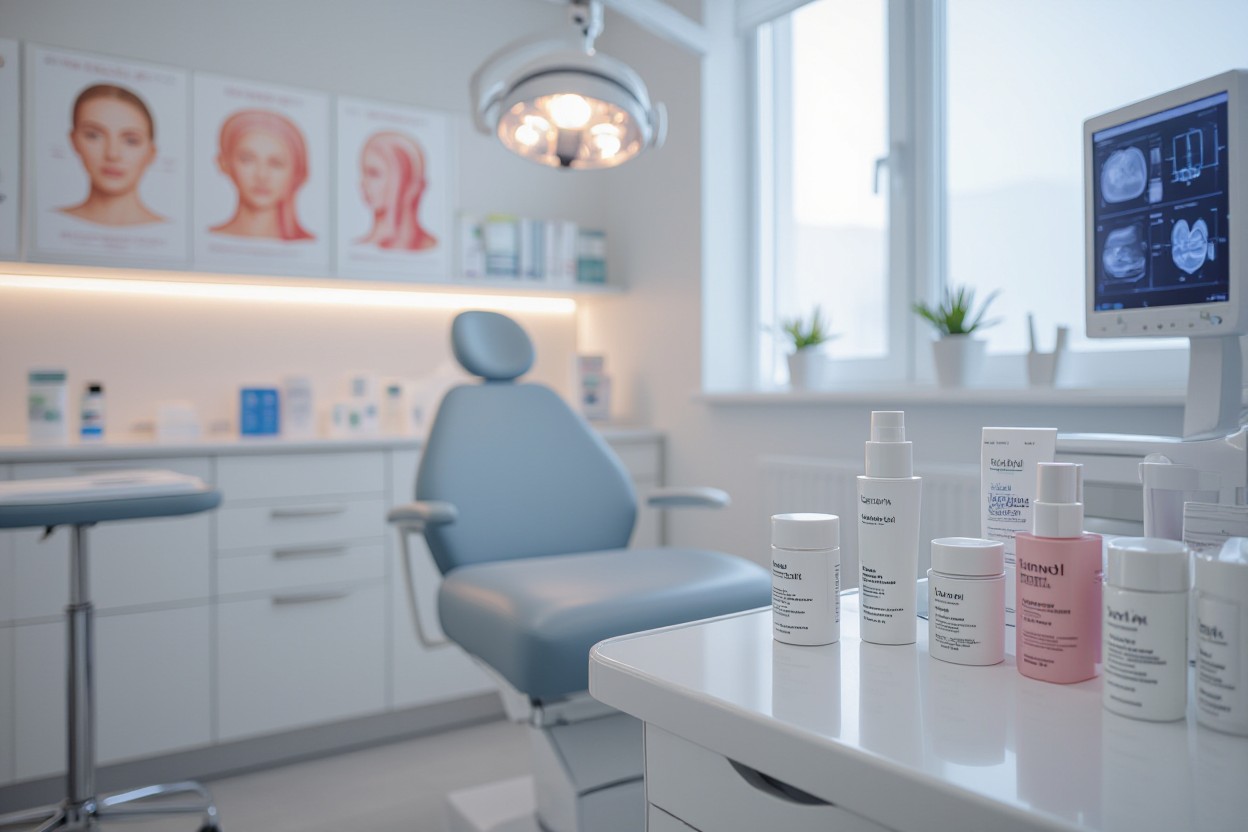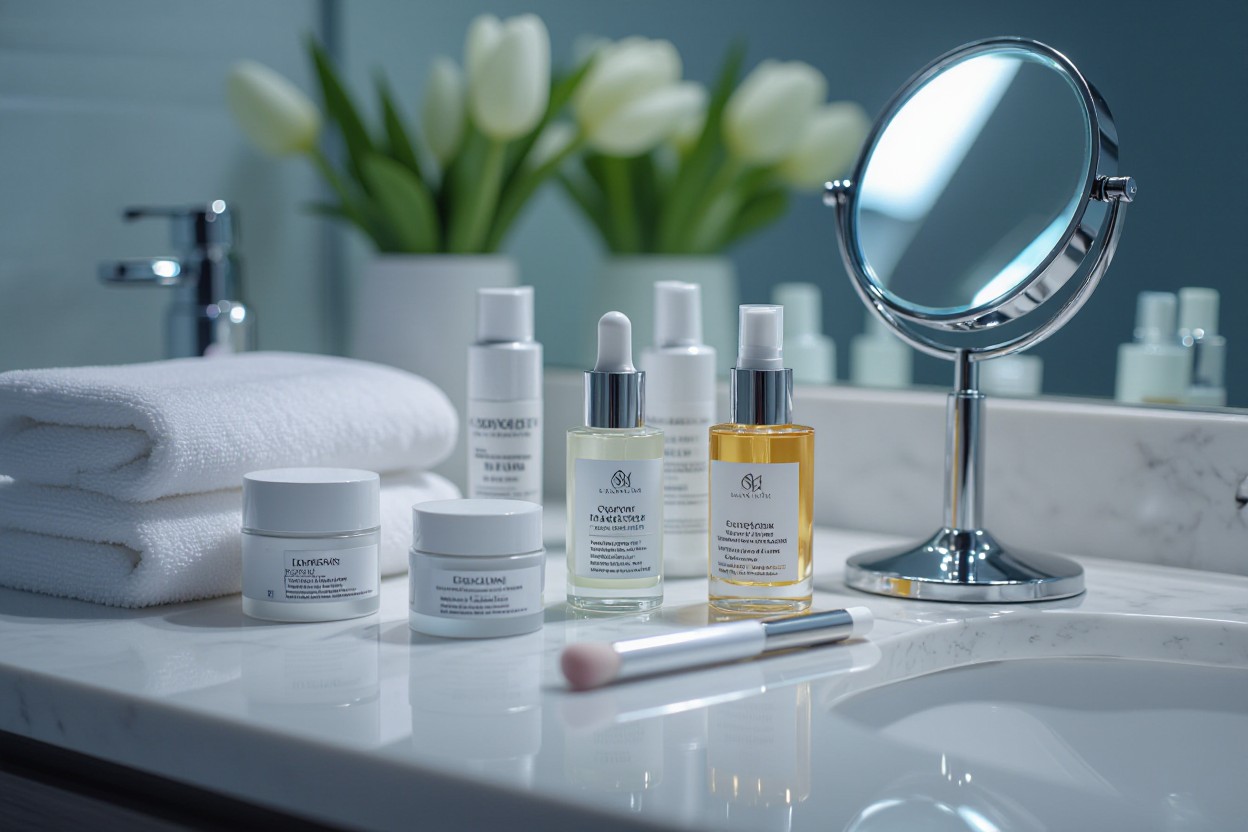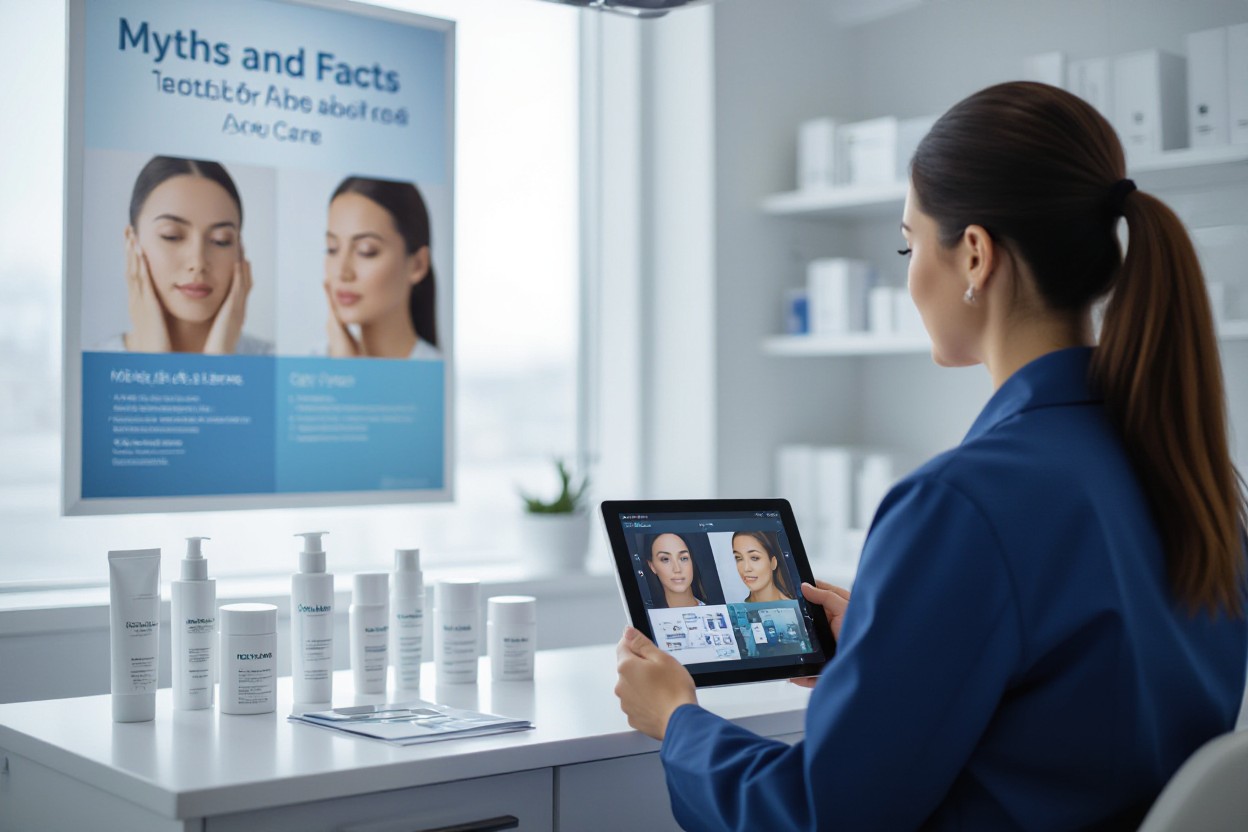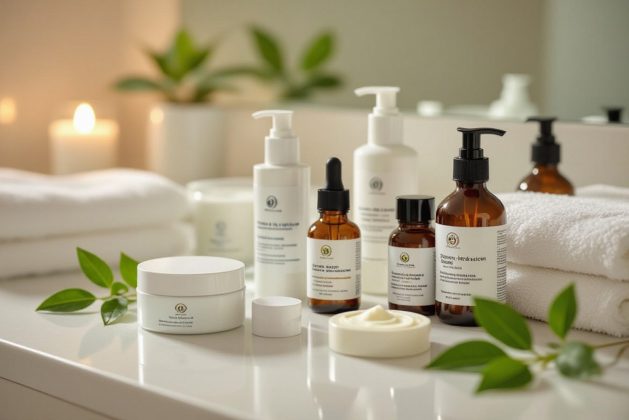Most people struggle with acne at some point, and I understand the frustration it brings. Through careful observation and scientific inquiry, I’ve discovered that consistent skincare routines, combined with evidence-based treatments, offer the most promising path to clearer skin. You must treat your skin with patience and precision, avoiding harsh methods that can worsen inflammation. In this guide, I will share strategies grounded in biology and dermatology to help you reduce acne effectively, cultivating a healthier complexion using rational, effective principles.

The Underlying Causes of Acne: Beyond the Surface
Acne arises from a complex interplay of factors that extend well beyond clogged pores. An overproduction of sebum in the skin combines with dead skin cells and bacteria, creating an environment ripe for inflammation. However, these surface symptoms often mask deeper physiological processes, including hormonal fluctuations, immune responses, and genetic predispositions, all contributing to the persistent challenge acne presents. Understanding these causes can make your approach to skincare more precise and effective.
Hormonal Influences and Their Impact
Hormonal changes, especially surges in androgens like testosterone, significantly influence sebum production, which directly affects acne severity. During puberty, menstruation, or conditions like polycystic ovary syndrome (PCOS), your hormone levels shift, provoking your skin’s oil glands to become overactive. These fluctuations lead to enlarged pores and create a breeding ground for acne-causing bacteria, explaining why many struggle with breakouts cyclically or throughout their lifetime.
The Role of Diet and Lifestyle Choices
Emerging research connects high glycemic index foods, dairy consumption, and poor sleep patterns to increased acne risk. Diets rich in refined sugars and carbohydrates can trigger insulin spikes, which indirectly stimulate androgen production and exacerbate inflammation. Coupled with stress and inconsistent sleep, these factors further impair your skin’s ability to heal and regenerate, making your daily habits an undeniable piece of the acne puzzle.
Diving deeper, the relationship between diet and acne involves hormonal and inflammatory pathways. For instance, a study published in the Journal of the Academy of Nutrition and Dietetics linked high-glycemic-load diets: foods like white bread, sugary beverages, and processed snacks, to increased acne severity. Conversely, incorporating foods with anti-inflammatory properties—such as omega-3 fatty acids found in fish and antioxidants present in vegetables—can mitigate these effects. Lifestyle elements like chronic stress release cortisol, which disrupts the delicate hormonal balance and slows skin repair. Therefore, transforming your diet and managing stress become indispensable in your long-term acne strategy.
Crafting Your Daily Skincare Routine: Proven Strategies
Designing an effective skincare routine hinges on consistency and understanding your skin type. Combining gentle cleansing, targeted treatments like salicylic acid or benzoyl peroxide, and non-comedogenic products forms the backbone of acne control. Timing matters too; applying treatments on damp skin can enhance absorption, while layering products from thinnest to thickest improves efficacy. I recommend assessing your skin’s response weekly, adjusting ingredients or frequency to minimize irritation while maximizing results. This approach not only tackles active acne but fortifies your skin’s resilience against future breakouts.
Cleansing Techniques: Finding the Right Approach
Opt for a mild, sulfate-free cleanser containing ingredients such as niacinamide or zinc, which reduce inflammation without stripping natural oils. Avoid over-cleansing; washing twice daily suffices to remove excess sebum and debris without disrupting the skin barrier. Using lukewarm water aids in cleansing efficacy without promoting oil overproduction linked to hot water. I prefer gentle circular motions that stimulate circulation without mechanical irritation, enhancing the skin’s natural renewal processes. These controlled techniques reduce follicular buildup, lowering the chance of pore blockage and subsequent acne.
The Importance of Moisturization and Sun Protection
Moisturizers with ceramides and hyaluronic acid replenish the skin barrier compromised by acne treatments, reducing dryness and flaking. Applying a broad-spectrum sunscreen of at least SPF 30 daily prevents UV-induced hyperpigmentation and inflammation that can worsen acne scarring. I suggest lightweight, oil-free formulations labeled “non-comedogenic” to avoid clogging pores. Significantly, integrating sun protection into your regimen not only preserves complexion health but also enhances the skin’s healing trajectory following treatment.
Extending beyond hydration, moisturizers fortified with antioxidants like vitamin E or green tea extract combat oxidative stress from environmental aggressors, which can provoke or exacerbate acne lesions. Studies show that consistent use of sunscreen reduces post-inflammatory erythema, helping maintain even skin tone post-breakout. I find combining moisturizing and sun protection a synergistic strategy; it neutralizes free radicals, supports epidermal repair, and shields fragile new skin layers exposed after exfoliation or benzoyl peroxide application, ultimately fostering a smoother, clearer complexion.

Spot Treatments and Medications: What Works and What Doesn’t
The sheer number of spot treatments and acne medications on the market can easily overwhelm, yet science pinpoints a few that truly deliver. Products containing benzoyl peroxide or salicylic acid show consistent, measurable reduction in inflammatory lesions by targeting bacteria and unclogging pores. Meanwhile, unproven remedies often waste time and exacerbate irritation. You should base your choices on ingredients with verified mechanisms, using targeted treatments as part of a broader regimen adapted to your skin’s needs and sensitivities.
Over-the-Counter Solutions: Active Ingredients That Matter
Among over-the-counter options, benzoyl peroxide (2.5–10%) kills acne-causing bacteria and reduces inflammation effectively, but may dry sensitive skin. Salicylic acid, a beta-hydroxy acid, penetrates pores to exfoliate dead cells and reduce blackheads. For mild acne, adapalene (0.1%) offers a retinoid-like effect without the prescription barrier, accelerating cell turnover. These actives, formulated properly, can transform your skin’s texture and tone when applied consistently, but layering multiple harsh ingredients can lead to setbacks rather than progress.
Prescription Medications: When and Why to Seek Professional Help
If acne becomes severe, persistent, or scars develop, dermatologists may prescribe oral antibiotics, stronger retinoids like tretinoin, or hormonal treatments such as spironolactone. These interventions address acne at biological layers unreachable by topical OTC solutions alone. For those with cystic or nodular acne, systemic medication is often the only way to interrupt the cycle of inflammation and damage. Consulting a professional ensures personalized dosing, monitoring for side effects, and an evidence-based plan tailored to your skin’s complexity.
Prescription treatments work by modulating the skin’s immune response, reducing oil production, and targeting bacterial proliferation to a far greater extent than topical agents. Oral isotretinoin, for example, systematically shrinks the sebaceous glands, leading to a remission rate of up to 85%, but requires strict medical supervision due to potentially serious side effects. Hormonal therapies can rebalance androgen levels, especially in adult females with acne flares linked to menstrual cycles. The precision and potency of these medications make professional guidance indispensable, ensuring efficacy while minimizing risks.
Lifestyle Adjustments for Long-term Clarity: Holistic Approaches
Maintaining clear skin transcends topical treatments; it demands comprehensive lifestyle adjustments that target underlying causes. By integrating balanced nutrition, regular physical activity, and mindful habits, you can modulate hormone levels and reduce inflammation that often provoke acne. Embracing holistic approaches like daily meditation or yoga fosters internal equilibrium, which manifests externally as improved skin clarity. Combining these practices with your skincare regimen forms a synergistic defense against recurring breakouts, ensuring results endure rather than just temporarily mask symptoms.
Stress Management Techniques That Address Skin Issues
Chronic stress triggers the release of cortisol, which elevates oil production in skin glands and disrupts barrier function, exacerbating acne. Techniques such as guided meditation, deep-breathing exercises, and progressive muscle relaxation have demonstrated efficacy in lowering cortisol levels. I advise experimenting with these practices daily for at least 10 minutes, as studies indicate a reduction in acne severity correlates with regular stress management, reinforcing skin resilience by calming systemic inflammation.
The Impact of Sleep and Hydration on Acne
Lack of sufficient sleep and inadequate hydration impair skin repair mechanisms and amplify inflammatory responses, directly influencing acne severity. Aim for 7-9 hours of uninterrupted sleep nightly and consume at least 2 liters of water to facilitate toxin clearance and maintain optimal skin moisture balance, factors crucial to minimizing pore blockage and bacterial proliferation that lead to breakouts.
During deep sleep phases, your body ramps up the production of growth hormones critical for cellular regeneration and immune function; these processes are fundamental to repairing damaged skin tissue and combating acne lesions. Additionally, dehydration thickens sebum, increasing the probability of clogged pores that serve as acne’s breeding ground. Integrating consistent hydration with adequate restorative sleep fortifies your skin’s natural defenses, creating an environment hostile to acne formation while promoting a healthy, radiant complexion over time.

Debunking Myths: Separating Fact from Fiction in Acne Care
Common Misconceptions and Their Detrimental Effects
You might have heard that eating chocolate or greasy foods causes acne, yet extensive research shows no direct link between diet and breakouts. Unfortunately, such myths prompt unnecessary dietary restrictions or reliance on unproven home remedies, often aggravating the condition. Another widespread misconception is that over-cleansing or scrubbing hard can clear acne, but this behavior irritates the skin, worsens inflammation, and disrupts its natural barrier. Misguided beliefs like these not only delay proper treatment but may induce anxiety, leading to a counterproductive cycle of skin damage and persistent acne.
Evidence-Based Practices You Can Trust
Scientific consensus supports topical treatments with proven efficacy, such as benzoyl peroxide, salicylic acid, and retinoids, which target bacteria, clogged pores, and cell turnover. Prescription medications like oral antibiotics or hormonal therapy are effective for moderate to severe cases. Clinical trials consistently show that consistent adherence to these regimens yields significant improvement. Furthermore, gentle cleansing routines and non-comedogenic moisturizers preserve skin health, minimizing irritation. Embracing evidence-based options empowers you to combat acne with methods validated by rigorous studies rather than anecdotal advice.
Diving deeper, randomized controlled trials demonstrate that benzoyl peroxide reduces Propionibacterium acnes colonization by up to 90%, diminishing inflammation. Retinoids normalize follicular epithelial desquamation, preventing comedone formation, a fundamental acne precursor. Salicylic acid’s keratolytic effects enhance exfoliation, facilitating pore clearance. Long-term studies indicate hormonal treatments, like oral contraceptives, regulate sebum production linked to flare-ups, particularly in women. These findings confirm that integrating such agents within a consistent skincare routine can dramatically decrease acne lesions and prevent scarring, underscoring the necessity of science-driven approaches over myth-derived practices.
Final Words
Presently, as I explore into the science of clear skin, I understand that mastering your skincare routine and exploring effective treatments is a rational approach to conquering acne. I encourage you to tailor your methods with patience and consistency, for the skin’s complexity mirrors the vastness of the cosmos. By blending knowledge of biology and care, you can transform your regimen into a logical system that diminishes acne’s hold, ensuring your skin reflects the intricate beauty of nature’s laws.





Leave a comment